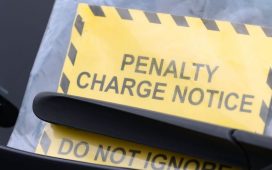Three water companies have asked the UK’s competition watchdog to allow them to raise bills even higher than they have been allowed over the next five years, as one chief executive said the industry regulator’s recent ruling was “unacceptable”.
Southern Water, Anglian Water and South East Water said on Tuesday that they had asked Ofwat, the water regulator for England and Wales, to refer its ruling on their business plans for 2025 to 2030 to the Competition and Markets Authority (CMA).
Southern – which also announced plans to raise £900m of new equity – had already been allowed a 53% increase to average bills for its 4.7 million customers over the next five years in a December ruling by Ofwat.
The Southern Water chief executive, Lawrence Gosden, said that settlement “would not enable us to deliver the environmental and performance improvements and new infrastructure that our customers and communities rightly expect”.
The company said the equity raise, which it hoped to conclude by the end of June, was not conditional on the outcome of the CMA process. It would allow the company to continue with its planned investments in new infrastructure and performance improvements.
Anglian, which serves 4.3 million customers across the east of England and Hartlepool, has asked the CMA to back its original business proposal to raise bills by 32% from £491 to £649 by 2030.
Anglian hopes to overturn a decision by Ofwat, which shot down that proposal in December and said it should be allowed to raise customer bills by only 29% to £631 over that period.
South East Water, which serves 2.3 million customers across Hampshire, Berkshire, Surrey, Sussex and Kent, argued that Ofwat’s response to its £1.9bn spending plan did not address issues such as “concerns over water security for our customers and climate change resilience”. It had proposed to increase bills from £232 to £331, but was only permitted an increase to £287.
Ofwat’s ruling, known as its final determination, would allow Anglian to spend £11bn over the next five years – £4bn more than over the last five years – on projects including on two new reservoirs in Lincolnshire and Cambridgeshire.
But the firm, which is counted as one of the performance laggards by Ofwat, has hit out at that decision, claiming it heaped additional pressures on the business as it tries to invest in its water and sewerage infrastructure.
“In the east of England, with four of the fastest-growing cities in the UK, as well as the Cambridge-Oxford arc, the levels of investment needed are significant,” said the Anglian chief executive, Mark Thurston.
“Ofwat’s stated aims for this settlement were to align the interests of companies and investors to those of customers, by setting the appropriate balance of risk and return,” he added.
“Unfortunately, after extremely careful consideration, the Anglian Water board has concluded that Ofwat’s final determination falls short of its own stated aims, and having already factored in nearly £1bn of efficiency savings, it means that additional pressures in the regulatory settlement are unacceptable.”
The chair of South East Water, Chris Train, said that asking Ofwat to refer its decision to the CMA was “not a decision we took lightly”.
after newsletter promotion
“We have scrutinised the final determination and agree unanimously that in its current format, it presents a risk to water security for our customers in the region,” he said. Last year, the company said it needed a cash injection to stay afloat.
The appeals to the CMA come the week after the troubled Thames Water lodged its own complaint with the competition regulator.
Thames Water, which is on the verge of financial collapse, had wanted to raise bills by 59% over the next five years, arguing that it needed the extra funding to invest and improve its services. Ofwat had approved a 35% increase.
Water companies had until Tuesday to decide whether to appeal against the determination. The attempts to appeal will affect bills for the financial year starting in April, and Anglia said it would not delay its investment plans for year one of its business plan.
Thurston said: “We do not take this decision lightly and having given serious consideration to our customers and to all of our other stakeholders we have concluded we must make use of the next step in the regulatory process and ask the CMA to reconsider whether the right balance has been struck.”
Thurston, who was the boss of the HS2 rail link until 2023 and an executive for the 2012 Olympic Games in London, was appointed to lead Anglian last year. He made headlines at the high-speed rail project for being the highest-paid civil servant, earning £644,999.
The CMA is under pressure to deliver on the Labour government’s “pro-growth” agenda. Its chief executive, Sarah Cardell, told the Guardian that where the watchdog needed to “go further is to make sure that perceptions of the regime haven’t created a chilling effect”.












